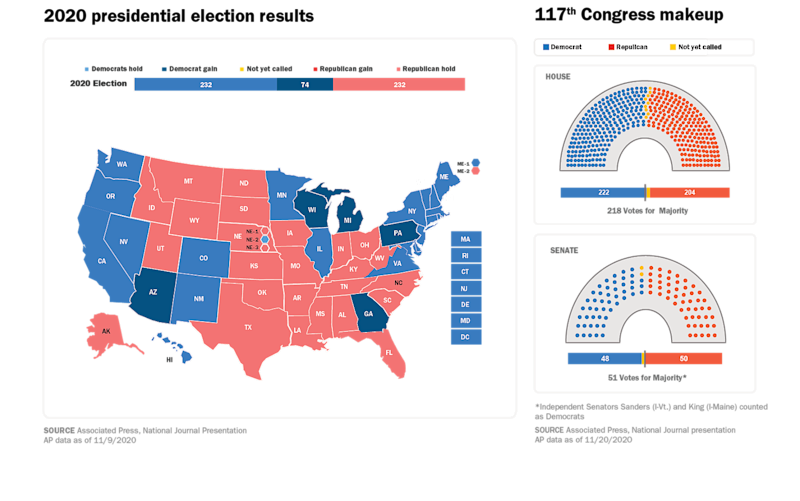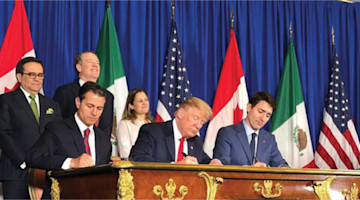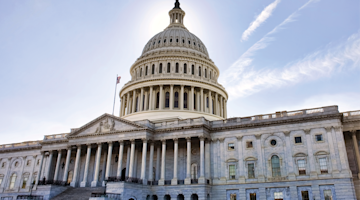Last month, Democratic former Vice President Joe Biden was elected president, defeating President Donald Trump, the Republican incumbent. In Congress, the GOP made significant gains in the House of Representatives, and the Senate’s majority will be decided in January, when Georgia holds runoffs to decide its U.S. senators. In the meantime, there is optimism that Congress will work more collaboratively in the coming year on several significant issues, including immigration reform, infrastructure, and Smartforce development. Below are possibilities for action on manufacturing issues before and after the new administration is in place.
Lame duck
Manufacturers are in a good position to be in the conversation regarding the next round of coronavirus relief legislation. There’s bipartisan support for a package, but the parties differ on the amount to spend. Congress could not reach an agreement before the election, but there’s still a chance to do something before the end of the year. The Senate GOP package provides roughly $500 billion in relief, including unemployment assistance, more money for schools and health care, liability protections, and new funding for the Paycheck Protection Program. The House leadership wants to add money for state and local governments. Merging the two measures as a compromise package is possible with a broader measure early next year.
Lawmakers also face a Dec. 11 deadline to prevent a partial government shutdown. At a minimum, they must pass a stopgap spending measure to fund operations through Sept. 30, 2021. This legislation could also be a vehicle for other targeted spending measures, such as infrastructure programs.
Tax policy
The Senate is the wildcard now, where majority control will be decided after the Georgia runoff elections on Jan. 5. One issue where majority control will have a significant impact is taxes. Under Democratic control, Senator Chuck Schumer, D-N.Y., the current minority leader, would likely push tax increases on corporations and S-corporations. President-elect Biden has indicated he wants to raise the corporate tax rate from 21% to 28% and increase taxes on wealthy earners, which would impact pass-through businesses. A Republican-controlled Senate would try to block efforts that roll back the 2017 tax cuts.
There’s an opportunity for manufacturers to convince Democrats that tax incentives like an expanded R&D tax credit and permanent 100% expensing are a means to get technology into manufacturing facilities, increasing productivity and competitiveness.
Trade
A Biden administration should take a more predictable and strategic approach to trade, focusing on engaging and building consensus with our trading partners. Look for an end to Section 232 tariff threats on autos as well as other executive actions to provide other targeted relief for U.S. allies, additional trade agreements, enforcement of labor rules in existing agreements, and an emphasis on the environment and climate change in trade pacts.
Concerning China, the tide has shifted on U.S.-China relations since President Trump took office. There is increasing bipartisan support to retaliate against China’s unfair trade policies and pressure on the incoming administration to act. Here too the president-elect is expected to work with our trading partners to form a united front instead of taking unilateral action. Don’t expect an immediate policy shift from the new administration.
Infrastructure
There is bipartisan support for a comprehensive infrastructure package next year. President Trump signed a stopgap highway bill that extended federal surface transportation programs through Sept. 30, 2021, which included $13.6 billion to keep the Highway Trust Fund from running out of funds. The extension bought additional time for Congress to complete a long-term surface transportation reauthorization next year. Legislation introduced in this Congress will serve as baselines for building a comprehensive bipartisan package next year.
Strength in manufacturing will be an important part of the Biden administration’s agenda and a top priority in Congress. Now is the time to reach out to your elected officials and congratulate them on their victories. This is an ideal way to begin a conversation about what’s important to manufacturers.
If you have questions on government relations issues, email me at athomas@AMTonline.org.









